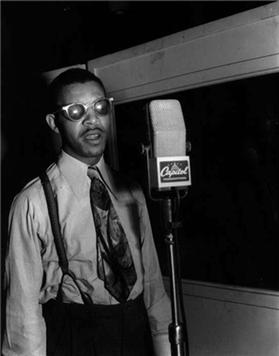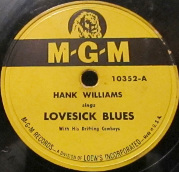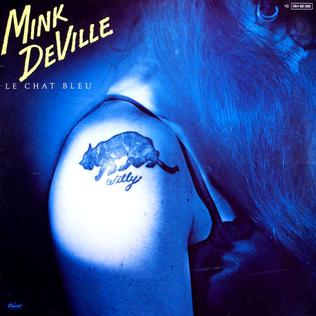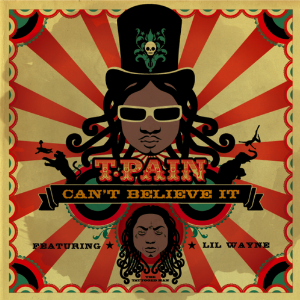Related Research Articles
"Mack the Knife" or "The Ballad of Mack the Knife" is a song composed by Kurt Weill with lyrics by Bertolt Brecht for their 1928 music drama The Threepenny Opera. The song tells of a knife-wielding criminal of the London underworld from the musical named Macheath, the "Mack the Knife" of the title.

Lawrence Eugene Williams was an American rhythm and blues and rock and roll singer, songwriter, and pianist from New Orleans. He is best known for writing and recording some rock and roll classics from 1957 to 1959 for Specialty Records, including "Bony Moronie", "Short Fat Fannie", "Slow Down", "Dizzy, Miss Lizzy" (1958), "Bad Boy" and "She Said Yeah" (1959). John Lennon was a fan, and the Beatles and several other British Invasion groups recorded several of his songs.

"That'll Be the Day" is a song written by Buddy Holly and Jerry Allison. It was first recorded by Buddy Holly and the Three Tunes in 1956 and was re-recorded in 1957 by Holly and his new band, the Crickets. The 1957 recording achieved widespread success. Holly's producer, Norman Petty, was credited as a co-writer, although he did not contribute to the composition.

Albert George Hibbler was an American baritone vocalist, who sang with Duke Ellington's orchestra before having several pop hits as a solo artist. Some of Hibbler's singing is classified as rhythm and blues, but he is best seen as a bridge between R&B and traditional pop music. According to one authority, "Hibbler cannot be regarded as a jazz singer but as an exceptionally good interpreter of twentieth-century popular songs who happened to work with some of the best jazz musicians of the time."

"You Ain't Seen Nothing Yet" is a song by Canadian rock band Bachman–Turner Overdrive (BTO). The song was written by Randy Bachman for the band's third studio album Not Fragile (1974). It was released as a single in 1974, with an instrumental track "Free Wheelin'" as the B-side. It reached the number one position on the Billboard Hot 100 singles chart and the Canadian RPM chart the week of November 9, 1974, as well as earning the band their only major hit single in the United Kingdom, peaking at number 2 on the UK Singles Chart. The follow-up single, "Roll on Down the Highway", was also a minor UK hit.

"See You Later, Alligator" is a 1950s rock and roll song written and first recorded by American singer-songwriter Bobby Charles. The song was a Top Ten hit for Bill Haley and His Comets in 1956 in the United States, reaching no. 6 on Billboard and CashBox. In the UK, the single peaked at no. 7.

"Boogie Woogie Bugle Boy" is a World War II jump blues song written by Don Raye and Hughie Prince which was introduced by The Andrews Sisters in the Abbott and Costello comedy film, Buck Privates (1941). The Andrews Sisters' Decca recording reached number six on the U.S. pop singles chart in the spring of 1941 when the film was in release. The song is ranked No. 6 on Songs of the Century. Bette Midler's 1972 recording of the song also reached the top ten on the U.S. Billboard Hot 100.

"Lovesick Blues" is a Tin Pan Alley song, composed by Cliff Friend, with lyrics by Irving Mills. It first appeared in the 1922 musical "Oh, Ernest", and was recorded that year by Elsie Clark and Jack Shea. Emmett Miller recorded it in 1925 and 1928, followed by country music singer Rex Griffin in 1939. The recordings by Griffin and Miller inspired Hank Williams to perform the song during his first appearances on the Louisiana Hayride radio show in 1948. Receiving an enthusiastic reception from the audience, Williams decided to record his own version despite initial push back from his producer Fred Rose and his band.
"School Days" is a rock-and-roll song written and recorded by Chuck Berry and released by Chess Records as a single in March 1957 and on the LP After School Session two months later. It is one of his best-known songs and is often considered a rock-and-roll anthem.
"Ko Ko Mo (I Love You So)" is a popular rock novelty song written in late 1954 by the rhythm and blues partnership of Forest Gene Wilson and Eunice Levy, and also credited to Jake Porter. One of the earliest rock and roll songs, it was probably "the most extensively recorded rock 'n' roll song of that time".
"That's My Desire" is a 1931 popular song with music by Helmy Kresa and lyrics by Carroll Loveday.

Le Chat Bleu is the third album by the rock band Mink DeVille, released in 1980. The album received critical acclaim and elevated lead singer and composer Willy DeVille to star status. The Rolling Stone critics' poll ranked Le Chat Bleu the fifth best album of 1980, and music historian Glenn A. Baker declared it the tenth best rock album of all time. The album cover is a photo of Willy's first wife Toots Deville's tattoo on her shoulder.
The Jive Bombers were an American R&B group from New York City.

"Shawty Get Loose" is the third single from hip hop artist Lil Mama's debut album, VYP: Voice of the Young People. The single is the remix version, where it features Chris Brown singing the chorus, and T-Pain rapping on the second verse. In the original, T-Pain originally sings the chorus, while Lil Mama raps on the second verse. Instead of T-Pain using the Auto-Tune effect, Chris Brown uses it, like he did in his other collaboration with T-Pain, "Kiss Kiss".

"Can't Believe It" is a single by American singer T-Pain. It was released on July 29, 2008, as the first official single from T-Pain's album Thr33 Ringz. The song features rapper Lil Wayne, marking the second collaboration between T-Pain and Lil Wayne being released as a single.

"I Can Transform Ya" is a song by American singer Chris Brown from his third album Graffiti. The song features vocals from American rappers Lil Wayne and Swizz Beatz. The artists co-wrote the song with Lonny Bereal, Trayce Green, and Jason "Poo Bear" Boyd, with Beatz producing the track. The song was released as the lead single from Graffiti on September 29, 2009, and was Brown's first official release since his altercation with former girlfriend, Barbadian singer Rihanna. Originally known simply as "Transformer", it is an electro-composed song infused with hip hop, crunk and "industrial" R&B musical genres, while making use of robotic tones. It is lyrically about introducing someone to a life of luxury.

"Rock-A-Beatin' Boogie" is a 1952 song composed by Bill Haley and first recorded by the Esquire Boys in 1952. Bill Haley and the Comets recorded the song in 1955 for Decca. The song was featured in the 1956 movie Rock Around the Clock.

"Willie and the Hand Jive" is a song written by Johnny Otis and originally released as a single in 1958 by Otis, reaching #9 on the Billboard Hot 100 chart and #5 on the Billboard R&B chart. The song has a Bo Diddley beat and was partly inspired by the music sung by a chain gang Otis heard while he was touring. The lyrics are about a man who became famous for doing a dance with his hands, but the song has been accused of glorifying masturbation, though Otis always denied it. It has since been covered by numerous artists, including The Crickets, The Strangeloves, Eric Clapton, Cliff Richard, Kim Carnes, George Thorogood, The Bunch, and in live performances by The Grateful Dead. Clapton's 1974 version was released as a single and reached the Billboard Hot 100, peaking at No. 26. Thorogood's 1985 version reached No. 25 on the Billboard Rock Tracks chart.
Bill Haley & His Comets recorded many singles and albums. The following list references only their original release and generally does not include compilation albums or single reissues. This list does not include releases on which the Comets worked as session musicians, and primarily focuses on releases during Haley's lifetime.
Louis Jordan was an American popular music innovator who recorded from the 1930s until the 1970s. During the 1940s, he was the most popular recording artist of the soon-to-be-called rhythm and blues music. Jordan had eighteen No. 1 hits, which places him as the third most successful singles artist in Billboard R&B charts history. His 1946 recording of "Choo Choo Ch'Boogie" is tied for second place for spending the most weeks (eighteen) at No. 1. Jordan's success was not limited to the R&B market — he also had No. 1 hits on the Billboard Pop and Country charts.
References
- ↑ "The Jive Bombers - Bad Boy" – via 45cat.com.
- ↑ "The Jive Bombers - Bad Boy". December 9, 1956 – via Discogs.
- ↑ Billboard Singles
- ↑ Marv Goldberg The Jive Bombers. Retrieved October 12, 2014.
- ↑ "The Jive Bombers Songs ••• Top Songs / Chart Singles Discography ••• Music VF, US & UK hits charts". Musicvf.com.
- ↑ "Billboard HOT100 / 1957-03-16". ns2.elpee.jp.